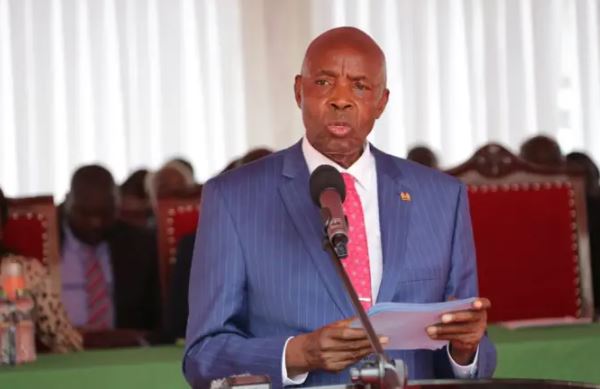 On Monday, Education Cabinet Secretary Ezekiel Machogu issued an instruction to the Kenya Universities and Colleges Central Placement Service (KUCCPS) and various universities to reevaluate their admission thresholds.
On Monday, Education Cabinet Secretary Ezekiel Machogu issued an instruction to the Kenya Universities and Colleges Central Placement Service (KUCCPS) and various universities to reevaluate their admission thresholds.
This directive was given following the announcement of the 2023 Kenya Certificate of Secondary Education (KCSE) exam results.
Machogu’s goal is to adjust course entry points to better match the current grading system, facilitating a smoother transition for students into higher education institutions.
Machogu emphasized the importance of this adjustment. “I am directing the Kenya Universities and Colleges Central Placement Service (KUCCPS) and universities to align their cluster points and entry requirements to avoid disadvantaging the candidates,” he declared.
Additionally, Machogu called upon the Kenya National Examination Council (KNEC) to finalize their processes promptly and transfer the results to KUCCPS for the commencement of student placements in various academic institutions.
A significant aspect of Machogu’s announcement was the push for a vigorous career guidance campaign aimed at the 2023 KCSE candidates.
This initiative is intended to aid students in making well-informed decisions about their future careers, with a particular emphasis on encouraging enrollment in Technical and Vocational Education and Training (TVET) institutions.
Machogu also took the opportunity to commend the various parties involved in the 2023 national examinations for their professionalism and integrity. He acknowledged that despite some challenges, additional measures were implemented to maintain the credibility of the results.
In a groundbreaking move, the new grading system introduced in 2023 will focus on five primary subjects that align with a student’s chosen area of specialization.
“Under the new grading system, more students will be able to pursue the career of their choice at the university, diploma, and TVET training, certificates and artisan levels that were previously impossible due to a restrictive system,” Machogu explained.
This system will particularly concentrate on assessing students’ literacy and numeracy skills, following recommendations from the Presidential Working Party on Education Reforms (PWPER).
Echoing Machogu’s sentiments, Education Principal Secretary Belio Kipsang highlighted the limitations of the previous grading system in September.
He lamented that under the old system, students were often hindered from pursuing specialized fields like medicine due to the influence of a single subject on their overall grade.
Kipsang’s critique pointed out the disadvantage this posed for students with specific career aspirations.








